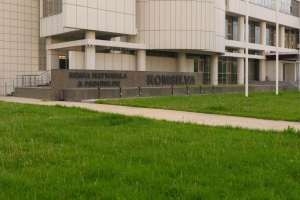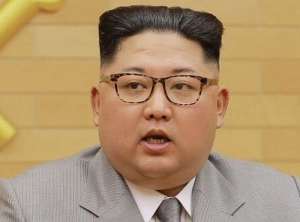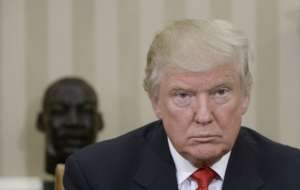• (an interview with Mihai Fercala, President - General Manager of SIF Transilvania)
Bursa: How would you describe the development of the capital market in Romania last year?
Mihai Fercala: Both the banking sector and the capital market of the world economy faced a crisis in 2008, a crisis similar to the banking and stock market crisis of 1929 - 1933. The mortgage crisis amplified risks on the financial markets and caused new financial turbulence in the globalized economy. The greatest economies of the world, and especially the U.S. economy, helplessly watched the collapse of reputed funds, investment banks and insurers. The economic growth rate slowed down dramatically, while many economies plunged into recession. Even the validity of the current economic development model is doubted. The imbalance between the components of the financial market spread to emergent economies, too, and interrupted their economic maturation. Romania"s economy was no exception. At first, there were statements and indications that our economy was not affected by the full power of the turbulence on international markets. There was also a belief that a market which had not abused lending and was not using highly sophisticated, opaque financial instruments could not be affected by the financial turbulence in the developed countries of the world. There were even periods when the Romanian capital market was not following at all the trend on the U.S. capital market. However, fact is that the global imbalances have caused a more profound transfer of risks to the emergent economies. Eventually, the collapse of the capital market in such economies was by far worse than the collapse of mature capital markets. This applies to the Romanian capital market, too, as it reached it limitations in 2008 and was not able to overcome the risks to which it was inevitably exposed.
Bursa: How would you characterize the fluctuation of SIF Transilvania stock in 2008? What is your forecast for 2009?
Mihai Fercala: The price of SIF Transilvania stock in 2008 was in line with the general downward trend of the Romanian capital market. The influence of the fact that the shares issued within the capital increase were released for trading in the context that some of the shareholders were contesting the capital increase with some significant media coverage did not lead to essential or durable changes in the market price of our stock. Generally speaking, I would say that the year 2008 was not characterized by a positive correlation between the performance of the listed companies and the market price of their stock. I believe that 2009 will make this correlation more visible and trigger a more realistic differentiation between the market value of the listed companies.
Bursa: Have you prepared a strategy to get past this period of crisis and decline?
Mihai Fercala: SIF Transilvania has a general development strategy, which has retained its basic coordinates. The main objectives are to restructure our stock portfolio, to improve the professional qualification of the management of the companies, to maximize the return on our holdings in over 250 companies, to identify the opportunities on the monetary and capital markets and to take advantage of them. Naturally, a strategy is never frozen. We have repeatedly updated these objectives making them more flexible with a view to achieving a new organizational structure of the company that would better serve our role. We are working on the implementation of a new risk management system, while having drastically limited new employment and spending. We have implemented a prudent investment strategy as we prefer to invest in low-risk / medium-yield opportunities instead of highly volatile, highly risky placements. We believe that the best thing to do under the current circumstances is to accumulate funds and invest it on the monetary market. When the overall trend of the capital market changes, we will have sufficient liquidities to capitalize on the momentum. As for the operational programme for 2009, it is being prepared and will be submitted to the shareholders for approval.
Bursa: You recently said that you were considering setting up provisions. Have you made any decision in this respect?
Mihai Fercala: SIF Transilvania has always set up provisions after having analysed the annual financial balances. We have been doing so in order to align to legal requirements and to remain on the safe side. The market conditions in 2009 compel us to be prudent in managing our portfolio. We will finalize our own analyses, discuss with the financial auditor and decide on the level of the provisions. Our specialists are currently working on finalizing the annual inventory of all balance sheet entries available on 31 December 2008. Then we will analyze all the economic, legal and prudential factors related to the establishment of provisions for depreciation and irreversible value loss. We can easily estimate that the ongoing financial crisis boosted the volatility of the capital market while reducing trading volumes. Under such circumstances, we can consider the provisions of CEE Directive IV on the adjustment for value losses that can be booked not only in the profit and loss account, but also to the equity account, thus affecting net assets.
Bursa: Are you planning a cost cut or optimization within SIF Transilvania?
Mihai Fercala: It has become the common practice of the financial management of SIF Transilvania to optimize costs. In the past few years, expenses incurred in order to create revenue increased in parallel with the volume of transactions on the capital market. Each time, it was our objective to make sure that the spending rate was below the revenue rate. As the market is going to contract, expenses related to trading will decrease proportionally and we will also try to cut operating and administrative expenses. It is quite possible however that the additional difficulties related to a declining market may increase certain expenses, such as marketing expenses. Generally speaking, we do not intend to exceed the operating expenses reported for 2009.
Agriculture, Tourism To Spearhead Recovery Plan
Bursa: Have you made a business plan for 2009?
Mihai Fercala: In this part of the year, the companies in the portfolio of SIF Transilvania are finalizing their financial reports for 2008. SIF Transilvania, too, is completing the procedures to close the financial year. The business plan of SIF Transilvania is being drafted and we are trying to make the most realistic estimate of the basic resources of the company, as well as to project the market development in 2009. We believe that the draft budget will be concluded and submitted to the shareholders for approval in the second half of February 2009.
Bursa: Are you worried about the profit for 2009, considering that the capital market is not showing any signs of recovery yet?
Mihai Fercala: The year 2009 is indeed a challenge for Romanian companies. The economic crisis and the fundamental dysfunctions of the Romanian economy will negatively reflect upon the actual achievement of business plans. Considering the circumstances, the limitation of resources, the decay of the market and the negative effects of the crisis, maximizing efficiency appears as the leading viable countermeasure.
It is equally true that the current restrictions can turn into an opportunity to restructure, reconsider and consolidate the business. As for us, we will focus on quality management for both SIF Transilvania and the companies in our portfolio. On this basis, we would say there are no reasons to be concerned about achieving favourable results in 2009. Moreover, we believe that the performance analysis in the context of multi-annual budgeting becomes much more relevant.
Therefore, the financial consolidation of the company, the priorities for 2009 will be to optimize the stock portfolio and increase the positive financial flows. All this will definitely lead to profit, but we will not outline the absolute numbers of the performance indicators at this date.
Bursa: Will you disburse dividends for 2008?
Mihai Fercala: So far, SIF Transilvania shareholders have approved the disbursement of dividends for each financial year. In fact, shareholder remuneration has always been one of the core components of our policy. As for the financial year 2008, considering the general conditions on the market in 2009, the shareholders" decision on dividend disbursement could be more nuanced than in the previous years.
I"m referring to the way in which the long-term interests of the shareholders can be better represented by reconsidering the dividend quota. A higher volume of liquidities available to the company offers the foundation for finalizing the ongoing investment projects and capitalizing on the opportunities that the market will surely offer in 2009. We believe that the first options regarding the dividend policy for 2008 can be laid on the table at the end of March 2009, after having processed all financial information. Such options will be submitted to the shareholders for consideration and approval during the Ordinary General Meeting.
Bursa: Are you concerned regarding the development of the Romanian economy in 2009? In your opinion, what are the vulnerabilities of the Romanian economy?
Mihai Fercala: As I mentioned before on this topic, the crisis has not yet climaxed in Romania. The year 2009 is marked by serious doubts about macro-economic factors under the Government"s attention. As for the capital market, the uncertainty and vulnerability are fuelled by a number of factors among which there are the high volatility of the market, the lack of liquidities and the loss of investor confidence.
For these reasons, both the capital market and the economy as a whole are characterized by a number of vulnerabilities, especially on short term. Depending on how structural reform is implemented in the national economy, and especially on how the competitiveness of Romanian companies is going to increase, we will manage to minimize the negative effects of the economic and financial crisis.
Bursa: There were proposals for a national crisis management plan. In your opinion, what should such plan contain?
Mihai Fercala: For the time being, the national budget and major economic indicators are being defined by the Government and will definitely be based on the current macro-economic context in the country, the objectives of the ruling programme and the effects that the international crisis is having on the Romanian economy.
The national crisis management plan should include policies to optimize the overall budgeted cost, optimized fiscal policies, further measures to reform the national administration, measures to augment competencies in the field of attracting reimbursable and non-reimbursable foreign resources for financing investment projects, the common macro-economic policies and visions of the Government and the National Bank regarding the exchange rate, measures to ensure economic growth and contain the inflation rate, strategies to stimulate and augment the role and functions of the capital market and national securities exchanges.
It is important that this programme meets the immediate requirements of the national economy and also remain in line with the guidelines of the post-accession strategy for 2007-2013. It is time that the sectors of the Romanian economy which have a potential competitive advantage on other European economies made a substantial contribution to supporting the economy during the crisis. I am referring especially to tourism and ecological agriculture. It is also imperative that we take rapid and effective action to make the full use of EU funds for projects that that support the real economy.

















































